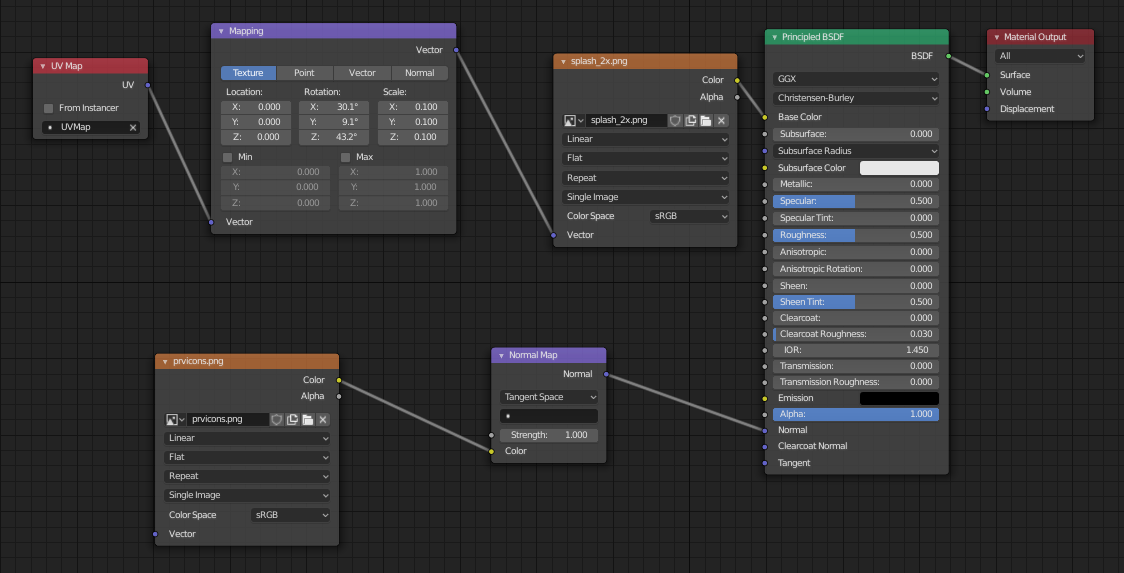Import & Export of Node Shaders
While Blender now only supports the advanced node-based shading model for its materials, most IO formats only support a basic shading model, similar to the legacy fixed pipeline of old GPUs.
Blender features a way to convert between those, which any add-on can use, but it is currently pretty basic still. Especially for exporting from Blender materials, the node system must follow some strict requirements.
Tip
The glTF format uses a more detailed conversion to and from shader nodes.
Note
The wrapper is designed to be as symmetrical as possible (i.e. it is expected to give reproducible results across several import/export cycles).

A typical setup of shader nodes that can be exported.
Supported Node Setup
This is especially important for exporting, importing will simply re-generate a similar setup.
Note that the features listed below are those supported by the wrapper. Each add-on may have its own way to adapt them to its material system, some may not be handled by it, etc.
- Principled BSDF
The main shader must be a Principled BSDF. Only parameters defined there, and textures linked to it, will be exported.
Currently handled parameters:
Base color
Specular intensity
Specular tint
Roughness
Metallic
IOR
Transmission
Emission
Emission Strength
Alpha
- Normal Map
If linked to the Normal input of the Principled BSDF node, the Normal Map node is also supported (including its texture obviously).
- Textures
Only Image textures using a UV mapping are supported. You may also use a Mapping node to move/rotate/scale it.